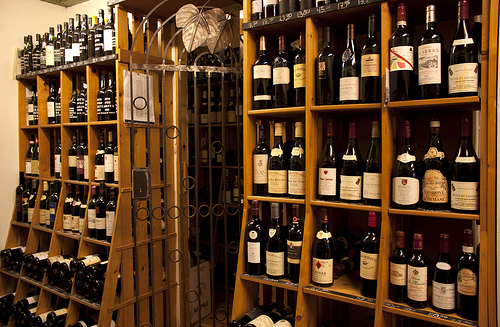Manage your crops with magic and astrology!
Some populations seem more susceptible to superstition than others. Sailors, baseball players, and yes, vintners. People who grow wine have long had a reputation for strange beliefs and superstitions regarding their crops. Perhaps it is because, much like baseball and sailing, growing wine grapes and making wine is a perilous activity which is as liable to random failure as it is success.
But it wasn't until this Cracked.com article that I discovered how truly bizarre some vintner practices really are. It all stems from a practice with the bland and reasonable name of "biodynamics." Biodynamics began in the early 1920s with a spiritualist named Rudolf Steiner. Steiner's beliefs were a mix of astrology, mysticism, and spirituality.
In 1924 a group of farmers asked Steiner to opine about the best way to grow crops. Although Steiner had no farming experience, he cobbled together a plan which treated the entire farm as one single organism. Steiner's method aimed to increase soil fertility without the use of any chemical fertilizers or pesticides.
All well and good. Doesn't sound too bad at this point, does it? Let's get into specifics.
For example, if a farm is having trouble with mice, here is how the problem is solved using Biodynamics: "First you catch the mouse that’s made a home in your vineyard. Next you skin him, discard the body, and burn the flesh into a wee pile of ashes. Then, when Venus is in the constellation Scorpius, you scatter the ashes over the vines. This will take care of your pesky mouse problem."
Or the Biodynamics recipe for compost. While most compost is comprised of a specific balance of organic material (including spent hay, animal bedding, and food scraps), Biodynamics compost consists of cow horns filled with manure and quartz dust, which are buried for the winter. According to Biodynamics, this practice works to fertilize the soil because the cow horns (which must be arranged in a specific pattern) "are utilized as antennae for receiving and focusing cosmic forces."
The proof is in the pudding, or so the vintners believe. Biodynamics has spread like crazy through the wine-growing culture. Although recent chemical analysis has shown no difference between conventional wine and Biodynamics wine, connoisseurs swear they can tell the difference.
Hmm… I wonder if these are the same connoisseurs who keep failing blind taste tests. Various double-blind studies have proved that wine experts are unable to tell the difference between white and red wine, between the same wine poured into two different bottles (the one with a fancier label was rated far higher), or tell the difference between a $5 and a $50 bottle of wine.
